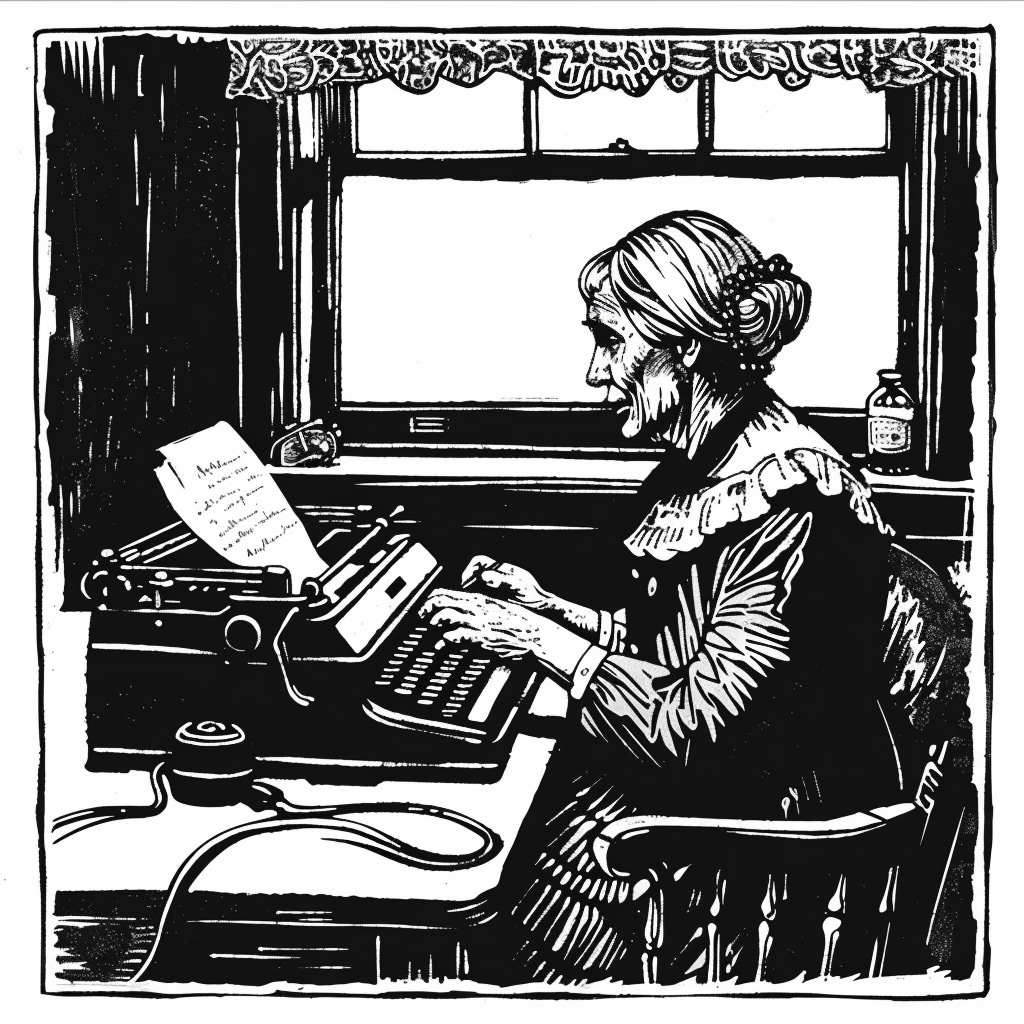In this letter dated June 12, 1930, Evelyn Underhill1 delves into the heart of sustaining a prayer life. As I read, she reassures me that it’s possible to develop a consistent practice of prayer by cultivating a simple Rule of Life and committing to it, even when it feels monotonous. I like how she advises turning to the Divine Office—set prayers at specific times of the day—to get started. This is one of the things I appreciate most about the Christian tradition—its wise, time-tested practices like the Divine Office, which help us get our footing. Finally she emphasizes that genuine devotion is not about feeling pious but about engaging in prayer even when it seems mechanical. I’m in a season now when I’m not feeling much consolation—moments of spiritual comfort and reassurance—her words encourage me to keep moving forward, one step at a time, trusting that this too can be a good and healthy season of my spiritual journey.
June 12, 1930
To Y.L.,
Last night we were out till nearly 10 (it was quite light with a glorious sky) driving slowly along the lanes looking for creatures. We found a charming adolescent plover, like a miniature ostrich, taking his first walk and very nervous and of course many kitten-rabbits bent on suicide...
Now to business.
(1) Anyone can "lead a prayer-life," i.e. the sort of reasonable devotional life to which each is called by God. This only involves making a suitable rule and making up your mind to keep it however boring this may be.
(2) If dryness and distractions have you in their clutches just now, fall back on the Divine Office. Say Prime or Terce in the morning, Vespers or Compline at night, with the intention of joining the great corporate prayer of the Church. You will then be making acts of Adoration, Penitence, etc., though probably not feeling them, which is another story and much less important. You can also offer your prayers, obedience and endurance of dryness to Our Lord, for the good of other souls—and then you have practised intercession. Never mind if it all seems for the time very second-hand. The less you get out of it, the nearer it approaches to being something worth offering—and the humiliation of not being able to feel as devout as we want to be, is excellent for most of us. Use vocal prayer and use it very slowly trying to realize the meaning with which it is charged and remember that anyhow you are only a unit in the Chorus of the Church and not responsible for a solo part so that the others will make good the short comings you cannot help.2
Evelyn Underhill (1875-1941) was a prolific writer, theologian, and mystic known for her profound works on Christian spirituality. Her most famous book, "Mysticism," remains a seminal text on the subject. Underhill emphasized the importance of the practical application of mysticism in everyday life, making it accessible to many. She believed that "the spiritual life of individuals has always depended on their capacity for self-surrender," highlighting the necessity of humility and openness in the spiritual journey. Underhill's own spiritual path was significantly shaped by her Spiritual Director, Friedrich von Hügel, who guided her through the depths of Christian mysticism and personal transformation.
Underhill, Evelyn. The Letters of Evelyn Underhill. United Kingdom: Darton, Longman and Todd, 1991.



As someone raised in a non-liturgical tradition who came to liturgy later in life, I also find tremendous comfort in the Daily Office and Underhill’s advice. It is a gift to go to time-tested, shared (and very beautiful) language when “I got nothin’” Thank you for sharing this!!
The Divine Office is a lifesaver. It’s only really been recently that I’ve realized how profound it is to join in the corporate nature of prayer—we’re part of a symphony, not a solo act.